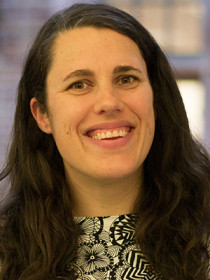Connect with Megan
About Megan
Finn's research examines relations among institutions, infrastructures, and practices in the production, circulation, and use of information and data. Finn analyzes how these themes shape experiences of disaster in her first book, called Documenting Aftermath: Information Infrastructures in the Wake of Disasters, with MIT Press. Finn's newest projects examine ethical practice in information security research, and the impact of new technology policies (such as the EU GDPR and India's Right to Privacy) on personal data management from a transnational perspective. Finn's work brings together perspectives and approaches from information studies, science and technology studies, and the history of media, information, and communication. Throughout her research, Finn engages questions that require historical and contemporary analysis, including: How do changing technological infrastructures, information practices, and technology policies co-construct possibilities for living?
Publications
Examines how changing public information infrastructures shaped people's experience of earthquakes in Northern California in 1868, 1906, and 1989. Analyzes the institutions, policies, and technologies that shape today's postdisaster information landscape and considers these historical moments comparatively.
Examines what it means for contemporary disaster response plans to rearticulate sociotechnical repair activities within the paradigm of resilience.
Identifies and examines the assumption of information determinism that is commonplace in policy arenas: that mere access to the “right information” will precipitate desired actions.
Draws from document analysis and interviews with over one hundred people involved with producing and reading humanitarian situation reports. Examines humanitarian information labor in a decentralized, hierarchical, collaborative, political, and competitive work environment.
Notes social media datasets have limitations that, if not sufficiently understood and accounted for, can produce specific kinds of analytical and ethical oversights. Analyzes some of the problems that emerge from the reliance on particular forms of crisis data. Suggests ways forward through a deeper engagement with ethical frameworks and a more critical questioning of what crisis data actually represents.
Notes Californians made sense of the largest earthquake in the state's history in 1857 without standardized timekeeping or modern scientific theories. Explains that descriptions and explanations of the earthquake that surfaced were shaped by and reflected the 1857 information infrastructure.
